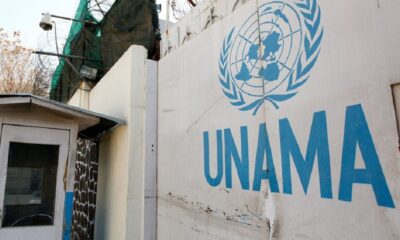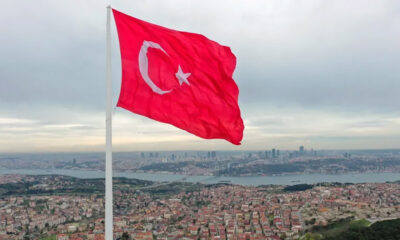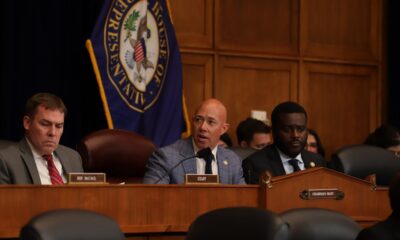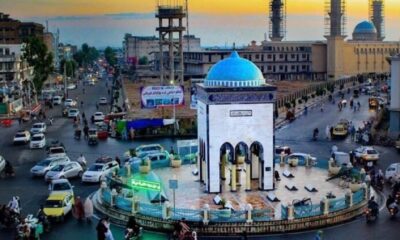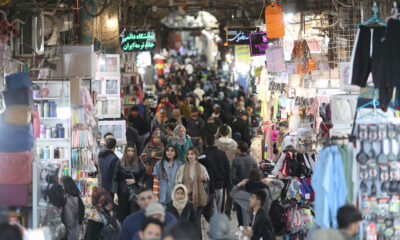Regional
Indian workers remain trapped in collapsed tunnel as rescue hampered
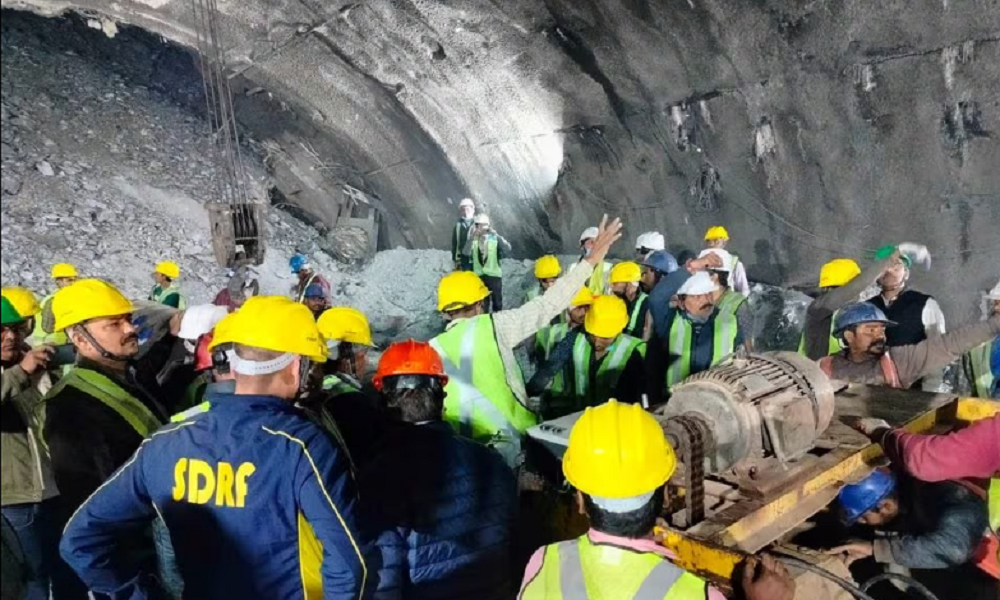
Rescue teams were unable on Wednesday to reach 40 workers trapped in a collapsed highway tunnel in India, as huge boulders were blocking efforts to create an evacuation passage, officials said.
It has been three days since the tunnel collapsed but the labourers continue to be safe and healthy, one official involved in the rescue operations told Reuters.
The trapped men have been given food, water and oxygen through a pipe since Sunday morning, after the tunnel caved in at 5:30 a.m. (0000 GMT).
“A heavy machine is being brought in from New Delhi to insert an evacuation pipe as the current one is being blocked by boulders,” G.S. Naveen, relief commissioner of Uttar Pradesh state, told Reuters.
There were about 50-60 men working on the night shift in the 4.5-km (3-mile) tunnel, which is being built in neighbouring Uttarakhand state on a national highway that is part of the Char Dham Hindu pilgrimage route.
Local media reported on Tuesday that those near the exit of the tunnel got out, while the 40 who were deeper inside were trapped.
The Char Dham highway is one of the most ambitious projects of Prime Minister Narendra Modi’s Hindu nationalist government. It aims to connect four pilgrimage sites revered by Hindus in Uttarakhand through 890 km (550 miles) of roads being built at a cost of $1.5 billion.
The mountainous region is prone to landslides, earthquakes and floods and the incident follows events of land subsidence that geologists, residents and officials have blamed on rapid construction in the mountains.
The project has faced criticism from environmental experts and some work had been halted after hundreds of houses were damaged by subsidence along the routes.
The work on the tunnel commenced in 2018 and was intended to be completed by July 2022, which has now been delayed to May 2024, a government statement said.
Regional
Anxious Iranians hope nuclear talks may ease risk of US attack
Many people in Iran to whom Reuters spoke by phone remained pessimistic about the future.
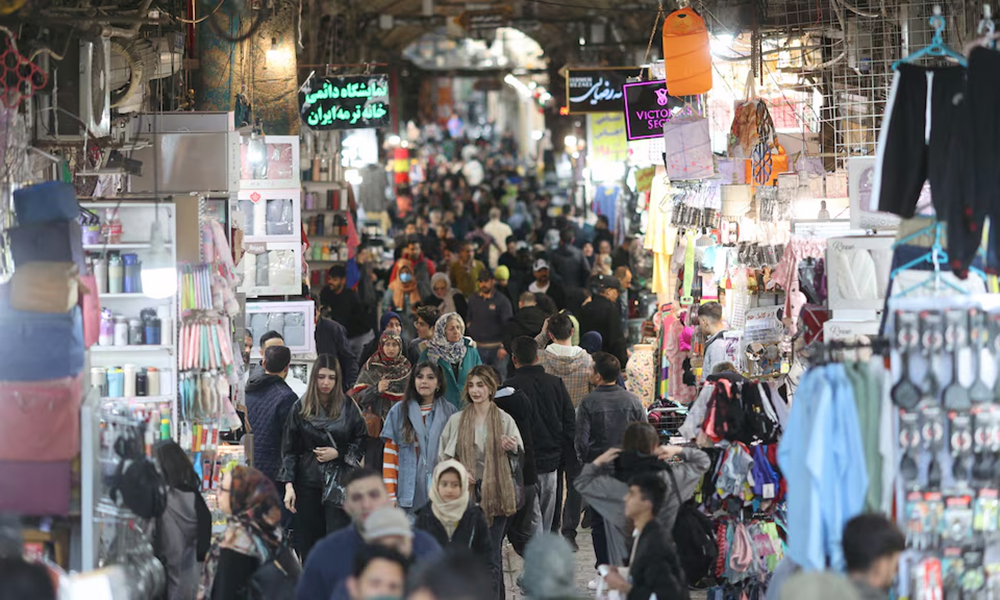
Weary from long years of biting sanctions and worried about U.S. threats of military action, Iranians have responded to the prospect of talks this weekend with expressions of hope that have boosted their stock market and depressed currency, Reuters reported.
The U.S.-Iranian talks in Oman are to address the long dispute between Iran and the West over its nuclear programme, though Iranian officials are sceptical of progress and U.S. President Donald Trump has repeatedly threatened to bomb if no deal is reached.
Many people in Iran to whom Reuters spoke by phone remained pessimistic about the future. But even the slim chance of a deal with an unpredictable U.S. president who has often boasted of his negotiating skills has given some people a little optimism.
Trump announced the talks on Monday. By Wednesday Iran’s rial currency, which had sunk to a record low of 1,050,000 to the dollar and whose value often tracks Iran’s geopolitical shifts, had strengthened slightly to 999,000 to the dollar.
Tehran’s stock exchange rose by 2.16% on Tuesday, its best performance since January, as investors shifted from safe havens in gold and foreign currency to domestic shares. The market had risen by another 1.1% in early trading on Wednesday.
Iran has had tense relations with Western powers and other major countries for much of the decades since its 1979 Islamic Revolution, particularly since 2003 when the dispute over its uranium enrichment programme moved to centre stage, read the report.
“For years, we have suffered over this dispute. It is time to end this standoff. We want to live a normal life with no hostilities and particularly no economic pressure,” said Amir Hamidian, a retired government employee in Tehran.
“I don’t want my country to be bombed … Life is already too expensive. My purchasing power is shrinking every day,” said the father of three, whose monthly salary equates to about $120.
Despite their tough rhetoric, the Islamic Republic’s clerical establishment feels compelled to agree to talks because of fears that anger over the deteriorating economy could spark protests, four Iranian officials told Reuters in March.
Economists believe that sanctions relief could lower import costs and boost export prices for Iranian firms, but wary investors are sticking to short-term bets amid doubt over the outcome of the talks scheduled for Saturday.
Many ordinary Iranians, who have seen repeated fruitless efforts to resolve the government’s standoff with the West, voiced little faith in the outcome of the discussions, Reuters reported.
Minou, a 32-year-old housewife and mother of two in the central city of Isfahan, was pessimistic.
“There will be no deal. There is a huge gap between the sides. Trump is going to bomb us. What should we do? Where should we go? I have withdrawn all my savings from the bank to have cash at home if the U.S. or Israel attack Iran,” she said.
Trump has signalled the renewal of his “maximum pressure” approach to Tehran, which during his first term in 2017-21 helped crash Iran’s economy with sanctions on its oil exports though it has also found ways to evade the embargo.
President Masoud Pezeshkian has repeatedly said the sanctions have made Iran’s economic problems more challenging even than during the Iran-Iraq war in the 1980s.
“I am worried to death. Enough is enough. Just reach a deal and end our misery,” said Mahsa, 22, a university student in the northern city of Sari.
Since 2017, Iranians have staged periodic nationwide demonstrations over poor living standards, calling for “regime change”.
But some hardliners are putting their faith in Supreme Leader Ayatollah Ali Khamenei, who – in the Islamic Republic’s complex power structure – has the final say on matters of state.
“Our Supreme Leader is fully aware of the situation and he will lead us out of trouble. Whatever he decides, we will support it,” said Mohammad Amin Hosseini, 27, from the northeastern city of Mashhad.
Regional
Are B-2 bombers a message to Iran? ‘We’ll let them decide,’ Pentagon chief says
Trump on Wednesday repeated a threat to use military force if Iran did not agree to end its nuclear program.
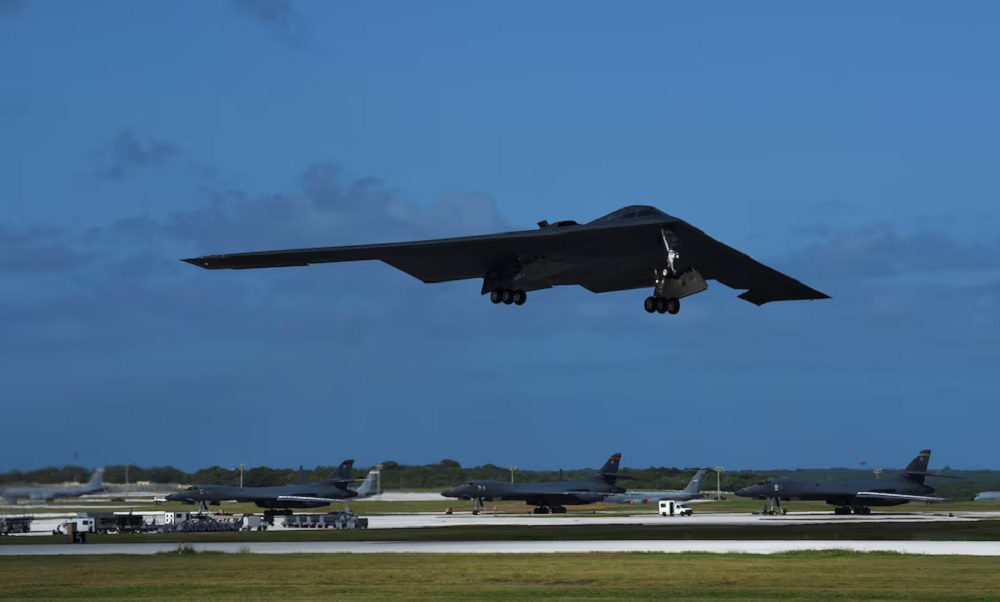
U.S. Defense Secretary Pete Hegseth said it was up to Iran to decide whether the recent U.S. movement of B-2 bombers was a message to Tehran, as he voiced hope that U.S.-Iran negotiations over Tehran’s nuclear program could be resolved peacefully.
As many as six B-2 bombers relocated in March to a U.S.-British military base on the Indian Ocean island of Diego Garcia, U.S. officials have told Reuters, amid a U.S. bombing campaign in Yemen and mounting tensions with Iran, Reuters reported.
There are only 20 B-2 bombers in the Air Force’s inventory so they are usually used sparingly.
Experts say that puts the B-2s, which have stealth technology and are equipped to carry the heaviest U.S. bombs and nuclear weapons, in an ideal position to operate in the Middle East.
Asked if the B-2s were meant to send a message to Iran, Hegseth said: “We’ll let them decide.”
“It’s a great asset … it sends a message to everybody,” he told reporters during a trip to Panama.
“President Trump’s been clear … Iran should not have a nuclear bomb,” he said. “We very much hope – the President is focused on doing that peacefully.”
Trump on Monday made a surprise announcement that the United States and Iran were poised to begin direct talks on Tehran’s nuclear program on Saturday, warning that Iran would be in “great danger” if the talks were unsuccessful.
Iran, which had pushed against Trump’s demands in recent weeks, said indirect talks would be held in Oman, underscoring the differences between the two countries.
Trump on Wednesday repeated a threat to use military force if Iran did not agree to end its nuclear program.
“I’m not asking for much … but they can’t have a nuclear weapon,” Trump told reporters. “If it requires military, we’re going to have military. Israel will, obviously, be … the leader of that. No one leads us. We do what we want.”
He declined to address when any military action could begin.
Although B-2 bombers have been employed to strike Houthi targets in Yemen in the past, most experts say use of the stealthy bomber is overkill there.
However, the B-2 is equipped to carry America’s the 30,000-pound GBU-57 Massive Ordnance Penetrator, designed to destroy targets deep underground. That is the weapon that experts say could be used to strike Iran’s nuclear program.
Western powers accuse Iran of having a clandestine agenda to develop nuclear weapons by enriching uranium to a high level of fissile purity, above what they say is justifiable for a civilian atomic energy program.
Tehran says its nuclear program is wholly for civilian energy purposes.
Regional
US energy secretary sees tighter sanctions on Iran without deal
Wright said he does not think European countries will want to return to Russia for their energy supplies when the war in Ukraine ends.
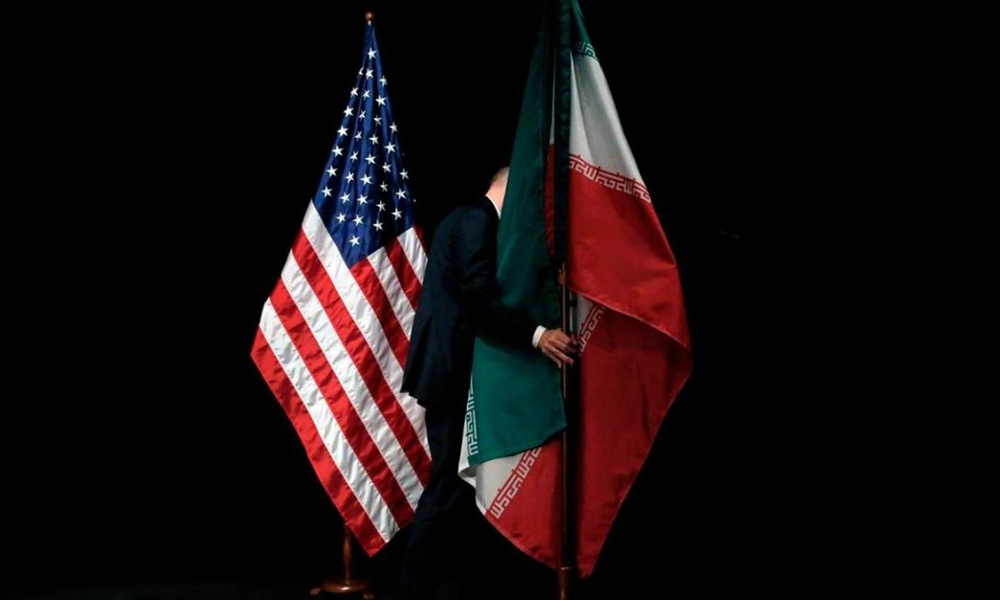
U.S. Energy Secretary Chris Wright said on Tuesday that Iran can expect tighter sanctions if it does not come to an agreement with President Donald Trump on its nuclear program, Reuters reported.
“So absolutely, I would expect very tight sanctions on Iran, and hopefully drive them to abandon their nuclear program,” Wright said in an interview with CNBC.
Wright on Wednesday will launch a nearly two-week tour of three Middle East countries, including Saudi Arabia, marking his first visit as a U.S. official to the de facto leader of the Organization of the Petroleum Exporting Countries, a source familiar with the matter told Reuters.
Wright also defended Trump’s executive order, expected later on Tuesday, to boost the coal industry as essential for artificial intelligence data centers, as well as steel production and other industrial activities.
“We need a growing supply of electricity to hit the AI boom and also for this re-industrializing of the United States. If we want to grow America’s electricity production meaningfully over the next five or 10 years, we’ve got to stop closing coal plants,” Wright said in the interview.
Asked about Trump’s comment that the European Union should buy more energy from the United States, Wright said he has had countries in Asia, in Europe and elsewhere reach out to express interest in buying more American energy.”
Wright said he does not think European countries will want to return to Russia for their energy supplies when the war in Ukraine ends.
“As I talk to European leaders, one thing they all share is a regret that they bet their energy future on Russia,” he said. “So I don’t think there’s a huge desire right now that, when the war is over, we’re going to we’re going to re-count on Russia for a dominant share of our energy supply. I think that’s very unlikely to unfold.”
-
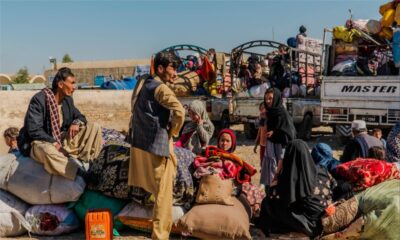
 Latest News4 days ago
Latest News4 days agoUN rights experts call on Pakistan to stop removal process of Afghan refugees
-
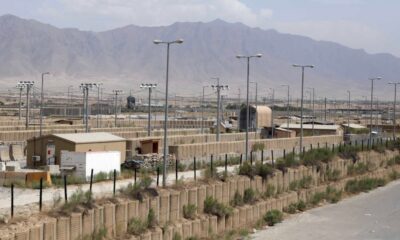
 Latest News3 days ago
Latest News3 days agoIEA rejects reports of US military planes landing at Afghanistan’s Bagram Air Base
-

 Science & Technology4 days ago
Science & Technology4 days agoMeta releases new AI model Llama 4
-
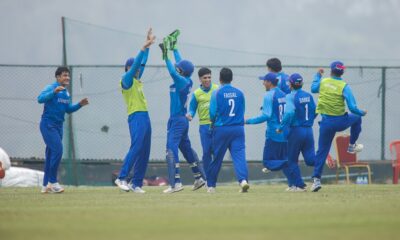
 Sport4 days ago
Sport4 days agoAfghanistan Under-19s beat Nepal by 1 run in second ODI, win series
-

 World4 days ago
World4 days agoAnti-Trump protesters gather in Washington, other US cities
-
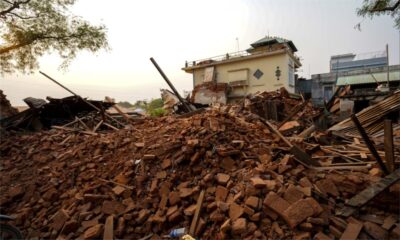
 Regional4 days ago
Regional4 days agoRains add to challenge for Myanmar quake relief, toll at 3,471
-
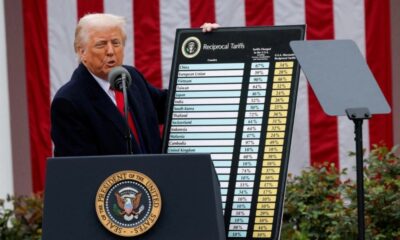
 Latest News3 days ago
Latest News3 days agoTrump’s tariff pressure on Afghanistan ‘will impact economic growth’
-
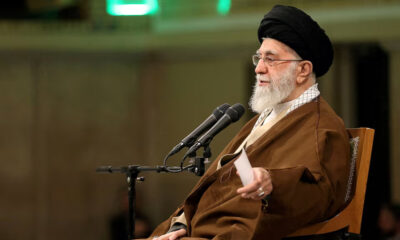
 Regional4 days ago
Regional4 days agoIran wants indirect talks with US, warns regional countries over strikes against it




